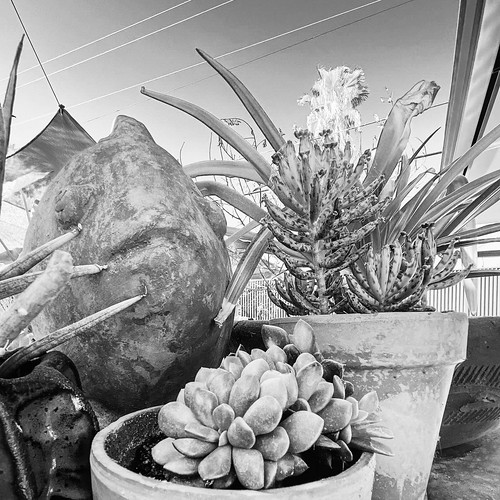What a “de facto ban” on Airbnb means for New York City
Airbnb #Airbnb

Earlier this month, New York City put into effect new rules targeted at short-term rental platforms, particularly Airbnb. From now on, hosts will have to register their rentals with the city, and only offer their spots to two or fewer guests if they’re renting for less than 30 days. Hosts must also be in their homes for the duration of guests’ visits. The new rule turns New York from having some of the most relaxed policies towards Airbnb, to some of the strictest, according to Heather Tal Murphy, a reporter at Slate.
Airbnb has called the new rule, which went into effect September 5, a “de facto ban” on its platform in the city. And it’s true that from August until mid-September, the number of listings on the platform plummeted from 22,000 to fewer than 7,000.
“Marketplace” host Kai Ryssdal talked to Heather Tal Murphy about what the restrictions will mean for Airbnb hosts and New York housing prices. Below is an edited transcript of their conversation.
Kai Ryssdal: Give us a sense of exactly how strict this rule in New York is.
Heather Tal Murphy: So you know, the whole world has grappled in different ways with how to regulate Airbnb. New York City, which has had a lot of Airbnbs for a long time, has been one of the laxest markets — there’s been rules, but they haven’t really been enforced, and they’ve been kind of confusing. And suddenly, we’re actually one of the strictest markets. It’s really difficult for hosts to list something for less than 30 days, unless they want a guest in the apartment or home where they live.
Ryssdal: At whom is this aimed? I mean, am I talking, about you know, some guy who owns an apartment in Brooklyn someplace, who is now challenged if he wants to rent it out? Or, is it sort of larger, landlord-y kind of places?
Murphy: Yeah, there have been investors who have been buying up houses and apartments just with the sole purpose of putting them on Airbnb. There have also been landlords who saw, “Oh, I can make three times as much putting something on Airbnb as renting to a longer term tenant.” At the same time, even if we’re talking about 11,000 units — there’s different numbers that people give of how many units might go back to being housing — even if that happened, the reality a lot of people say is: New York City’s a huge city, that wouldn’t even be half of the total units that were made in new construction last year. And so, the idea that suddenly taking even 11,000 units and putting them back on the housing market is going to impact and bring down the prices overall, immediately — unfortunately, that’s probably not true. And even some of the people pushing for this law acknowledge that. However, in some parts of neighborhoods that were really disproportionately impacted, you could imagine that even if the price didn’t change that much, suddenly, the experience of trying to get a place in that neighborhood and the dynamics in that neighborhood will change significantly.
Ryssdal: It has to be said that there are people who Airbnb their places, or another place that they own, and the reason that they can stay in New York is because they have the income from that extra place. And now they’re challenged in that.
Murphy: Absolutely. I mean, there are people who still are that ideal that Airbnb has tried to push over the years a lot, like, here’s this really sympathetic person who’s just getting by on their mortgage because they Airbnb those places. And sometimes that’s a little bit of a fiction, because there’s all these huge investors who buy tons of Airbnbs and manage tons of places, and it’s not that sweet little story. But those sweet little stories actually are still true. I’ve talked to some of those people. There are hosts who definitely were paying their mortgage, or just, you know, relying on the income that came from renting either their basement unit, or the other side of a duplex, and so those people are also affected, because again, what’s kind of wild about this rule is that even if it’s your basement unit, you cannot get it registered for less than 30 days. So you could put it on Airbnb for more than 30 days, but even if it’s your own unit, you actually wouldn’t be supposed to rent it out while you’re on vacation, unless you were there.
Ryssdal: You know, New York City is not the only city on the planet that’s trying to figure out what to do about Airbnb. Is there a model of peaceful coexistence out there? Perhaps a happy medium?
Murphy: It really depends who you ask. There are so many different models. One way that quite a few cities have put limits on it is to say you can rent out your place but for no more than this many days, like 30 days or 90 days, or something like that. But other places have taken an even stricter approach. New York City is going to be pretty lax for anyone who wants to rent it out for more than 30 days, so from that lens, in some ways, there is still possibility for people to put it on Airbnb.
There’s a lot happening in the world. Through it all, Marketplace is here for you.
You rely on Marketplace to break down the world’s events and tell you how it affects you in a fact-based, approachable way. We rely on your financial support to keep making that possible.
Your donation today powers the independent journalism that you rely on. For just $5/month, you can help sustain Marketplace so we can keep reporting on the things that matter to you.